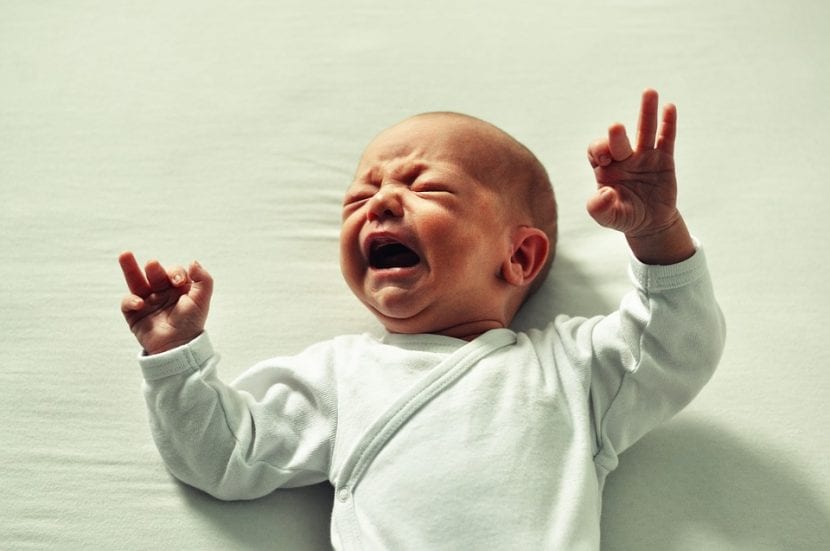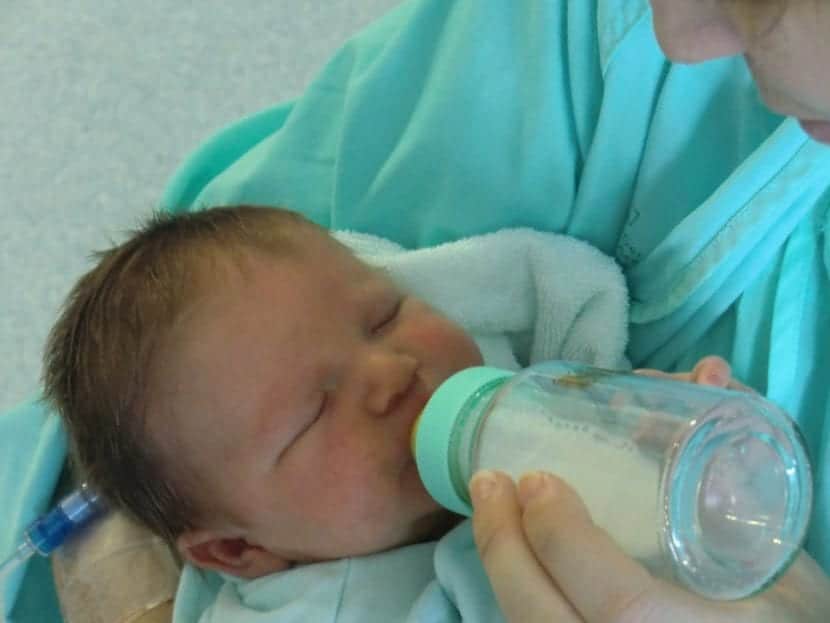
Babies of a few months have the most hiccups. Sometimes it occurs by swallowing air when breastfeeding or bottle feeding.
Babies have hiccups since they are in the mother's womb. Parents have a hard time when their attempts to remove it are unsuccessful. There are many formulas to eliminate it. Let's find out why hiccups occur in baby and some methods to fix it.
Hiccups in the baby and the causes
It is common for a baby to hiccup (from the Latin singles, translated into a sigh) and you don't have to shout to heaven or go to the emergency room at first. Babies of a few months are the ones with the most hiccups. The valve that connects your esophagus and stomach it remains open and causes this nuisance to occur. When you hiccup, your baby breathes out. The diaphragm contracts repeatedly and a sound is heard as is hip. In most cases there is no specific reason to explain this event. Other times it happens because:
- The baby is stuffed or has eaten too quickly.
- Certain foods or liquids have not done well for the baby.
- After a regurgitation.
- After intense crying.
- When there is a drop in temperature.
To prevent hiccups it is okay to use baby bottles anti-hiccup, take care that they do not swallow air when breastfeeding, bottle or eating, and try that at the time of feeding they have an upright posture. The hole in the bottle should be large enough for you to take in the milk well and you should not try too hard to suck, the regular amount of milk and the angle of the bottle also optimal.
Measures to fix it

To prevent hiccups, it is convenient for babies to drink milk from anti-hiccup bottles and in an upright position.
Hiccups usually go away on their own. It is said to occur to prepare the unborn to breathe outside of the uterus, training the muscles. The digestive and nervous system of the baby are about to form, with which it is deduced that the premature and newborns have more hiccups than those over that age. In babies this disorder usually disappears around 10 minutes after suffering it. When it does not end by itself they exist some steps to try to eliminate it:
- Infants can be put to the mother's breast or drink milk from the bottle.
- Drink some water.
- Making him sneeze is another idea. Sneezing helps the diaphragm to stabilize and not tighten.
- If the baby is eating, has swallowed air and has not expelled it, stop, change position and try to burp. The ideal posture is vertical.
If with these solutions the baby's hiccups do not stop, it is advisable to go to the pediatrician. If the baby cries intensely, has a fever and / or more than 2 hours have passed without solving the problem, it will be the medical professional who determines what to do. The important thing in these cases is to assess the situation, not to get nervous and not wait for symptoms that can lead to something more serious and irreversible.